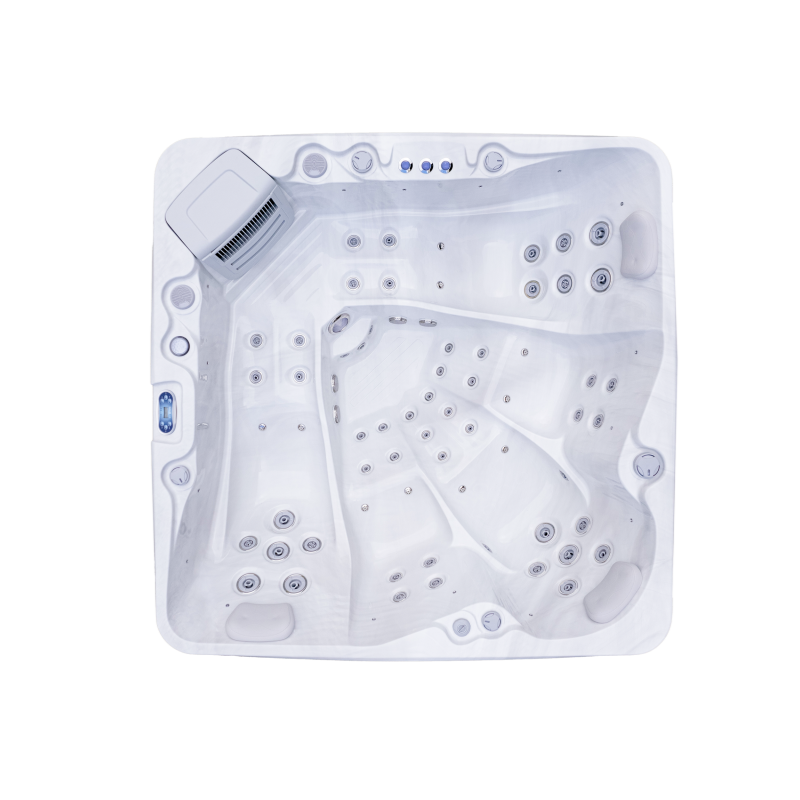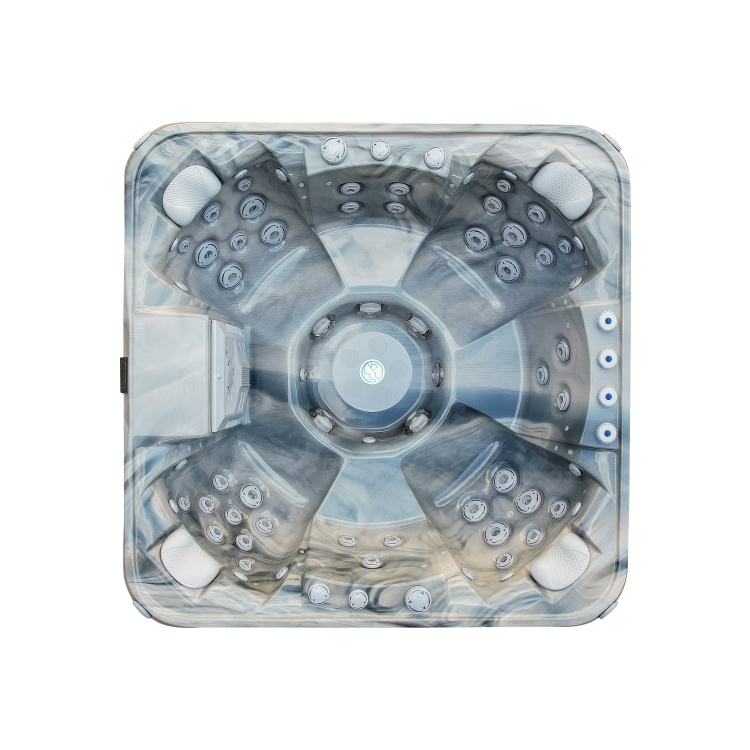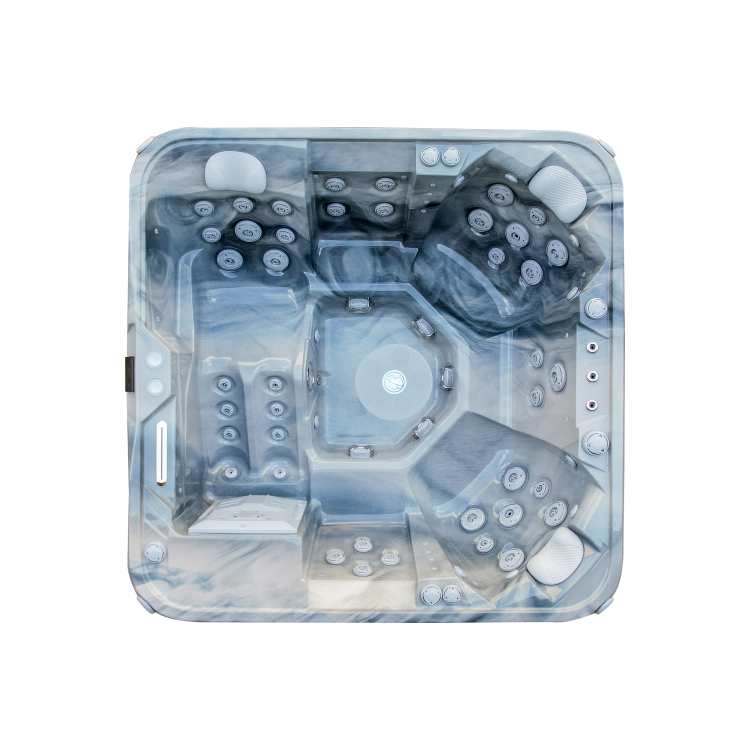When using a spa jacuzzi tub, many users tend to overlook a crucial component - the filter. This small device plays a key role in the entire spa jacuzzi tub system. It not only keeps the water clean, but also ensures the normal operation of the equipment and the safety of the user.
This article will explain in detail the main role of the spa jacuzzi tub filter, explore its irreplaceable role in the operation of the bathtub, and answer the key question of whether you can use a spa jacuzzi tub without a filter.
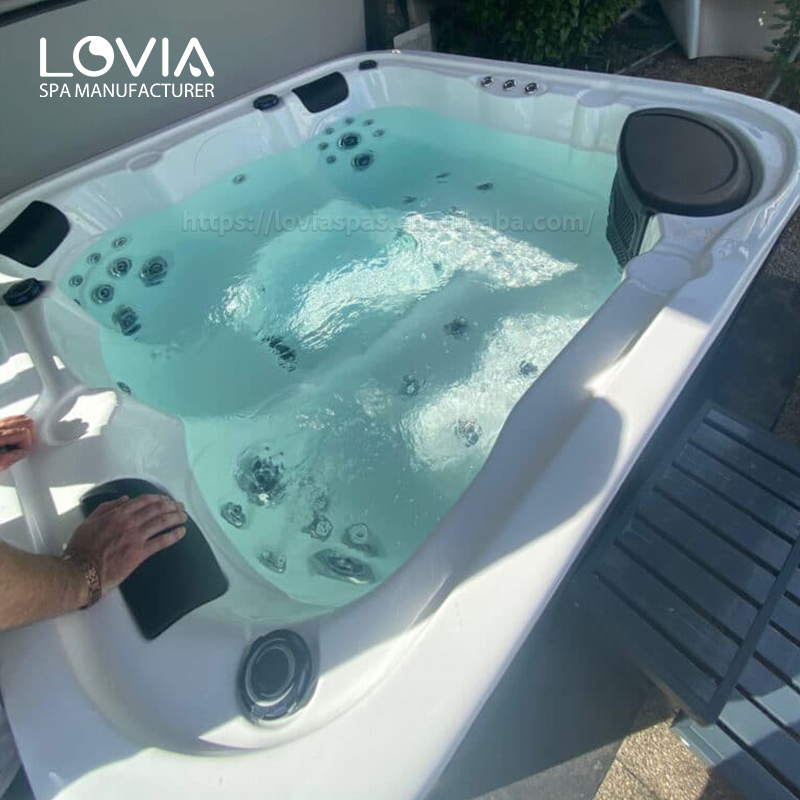
What is a spa jacuzzi tub filter?
The spa jacuzzi tub filter is a special device installed in the bathtub water circulation system, mainly used to remove impurities in the water, such as hair, dust, skin cells, mineral deposits and microorganisms. It acts like a kidney in the human blood system, and can effectively filter out foreign matter that should not be left in the water, thereby keeping the water pure and safe.
Filter composition structure:
Most spa jacuzzi tub filters consist of a filter cartridge, a filter screen and a sealing ring. The filter cartridge is usually made of durable plastic or fabric, while the filter is made of a fine mesh material that can capture very small particles. Some filters also have multiple layers of filter elements to grade different types of impurities in the water. The seal is used to ensure that the filter fits tightly into the pipe system when installed to prevent water leaks.
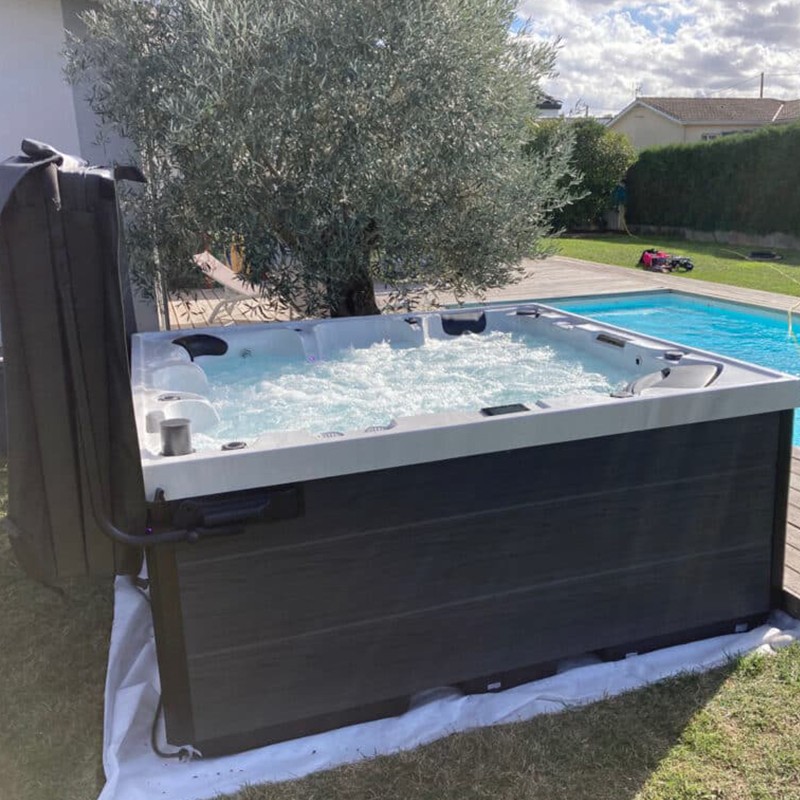
What is the role of the filter in the spa jacuzzi tub?
Keeping the water clean
The most direct role of the filter is to keep the water clean. In the spa jacuzzi tub, water is constantly recycled, and the user's body, dust in the environment, particles in the air, and chemicals used in the water treatment process will gradually deteriorate the water quality. The filter captures these suspended particles and prevents them from accumulating in the water. Long-term unclean water can cause a variety of problems, such as turbid water, odors, and even skin irritation.
● Remove impurities: The first line of defense of the spa jacuzzi tub filter is to remove large particles of impurities, including leaves, hair, and skin cells. If these impurities are not removed in time, they will clog the spa jacuzzi tub pipes and may even damage the water pump. Through the continuous work of the filter, these particles are trapped in the filter, and regular cleaning can keep the water clean.
● Filtering microorganisms and harmful substances: While chemical treatments (such as chlorine or bromine) are often used to kill bacteria and other microorganisms in water, filters can help remove the remains of these microorganisms and other harmful substances that may cause water contamination. Some high-end filters are also equipped with special antibacterial coatings, which further enhance their ability to filter microorganisms.
Keeping spa jacuzzi tub equipment in normal operation
In addition to cleaning water quality, another major role of the filter is to protect the spa jacuzzi tub equipment. Without a filter, dirt and impurities will directly enter the pump, heater and pipe system, causing equipment wear and even damage in the long run.
● Prevent water pump damage: The water pump is one of the most important mechanical parts in the spa jacuzzi tub. It is responsible for pushing water through the pipe system to achieve water circulation and heating. Without a filter, a large amount of impurities will directly enter the water pump, causing the pump's impeller to wear or even clog. Once the water pump is damaged, the entire system will not function properly and the cost of repair will increase significantly.
● Maintaining heating efficiency: The spa jacuzzi tub heater relies on the water flowing through it to heat the water. If the water contains too many impurities and the filtration is incomplete, the efficiency of the heat exchange will be affected, causing the heater to take longer to heat the water. In more serious cases, the accumulation of impurities may cause the heater to overheat or even damage. The filter keeps the heater running efficiently by removing impurities from the water in this process to ensure smooth water flow.
Improve user health and safety
Impurities, microorganisms and chemical residues in the water not only affect the operation of the equipment, but also may endanger the health of the user. The filter helps maintain a healthy water environment by removing these harmful substances.
● Preventing skin problems: Using untreated or impure spa jacuzzi tub water may cause skin allergies, itching and other problems. The growth of microorganisms in the water and the accumulation of chemical residues are all possible causes of skin problems. The filter effectively removes these impurities and reduces the risk of skin irritation.
● Protecting respiratory health: When using a spa jacuzzi tub, chemicals or pollutants in the water may evaporate into the air and be inhaled by the user, especially in a warm environment. These pollutants may cause irritation to the respiratory system, especially for users with allergies or asthma problems. Through effective filtration, harmful substances in the water are controlled, ensuring the respiratory health of tub users.
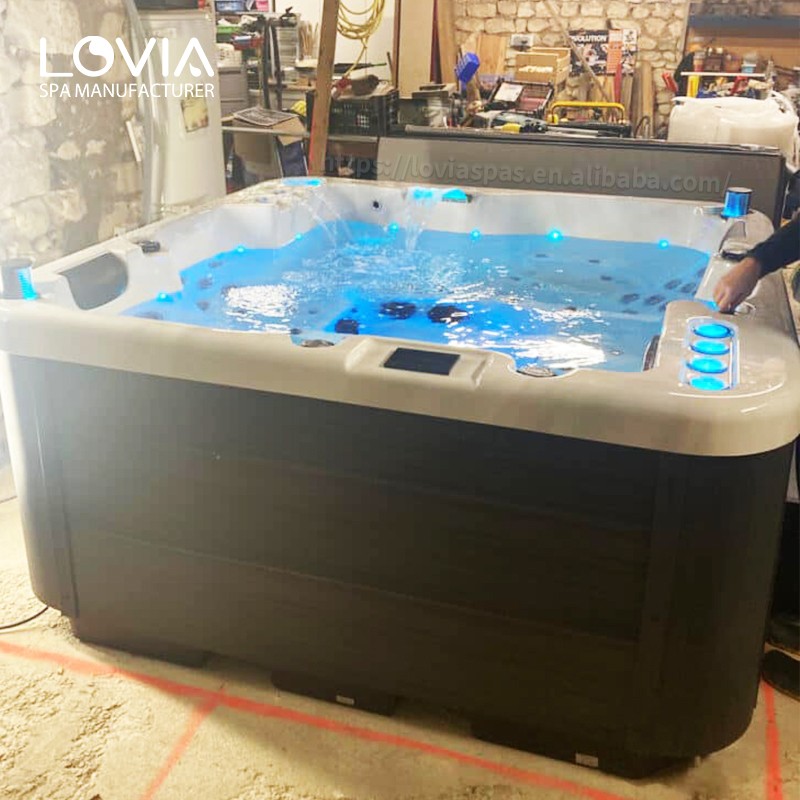
Can I use a spa jacuzzi tub without a filter?
Potential problems without a filter
Many users may ask: Can I use a spa jacuzzi tub without a filter? In theory, a spa jacuzzi tub can run for a period of time without a filter, but doing so will bring many problems and risks.
● Rapid deterioration of water quality: Without a filter, impurities in the water will not be effectively removed. The water in the spa jacuzzi tub will quickly become turbid, produce odors, and even breed bacteria and microorganisms. This will not only make the spa jacuzzi tub lose its original comfort, but may also cause health problems. Over time, the water quality will become worse and the difficulty of cleaning will increase.
● Increased risk of equipment damage: Without a filter, impurities will directly enter the core equipment of the spa jacuzzi tub - pumps, heaters, nozzles, etc. These impurities will not only reduce the efficiency of the equipment, but may also cause equipment clogging or wear, and eventually lead to system failure. The cost of repairing or replacing these devices is much higher than the cost of regularly changing filters.
● Wasted energy: Filters help keep the water flowing and the equipment running efficiently. If the water flow slows down due to impurities, the heater will need more time to heat the water and the pump will need more power to maintain the circulation, which will directly lead to energy waste. Increased energy consumption will significantly increase the cost of using a spa jacuzzi tub.
Risk Assessment of Using Without Filters
In extreme cases, if users decide to temporarily do not use filters, they should be aware that this is a short-term solution and should never be run long-term. Here are some potential problems with short-term use without filters:
● Water quality deteriorates very quickly: Without filters, water quality can deteriorate in just a few days, especially if the spa jacuzzi tub is used frequently.
● Increased risk of equipment damage: Even if it is only used for a short period of time, impurities may still enter the pump or heater, increasing the risk of equipment damage.
● Increased repair and maintenance costs: Although the cost of purchasing filters is saved, the cost of repairing equipment is usually many times higher.
In general, spa jacuzzi tubs are designed with filters in mind, and it is strongly recommended that users do not use the device without filters. Even in extreme cases, if the filter is damaged, users should replace it as soon as possible rather than ignore the problem for a long time.
Can I get customized spa products from Lovia Spa?
Absolutely! Lovia Spa offers a range of customization options for our outdoor spas. Whether you need specific size, design, or features such as unique jets or colors, we are happy to accommodate your requirements. We specialize in providing customized spa solutions for businesses, retailers, and personal buyers at competitive prices.


